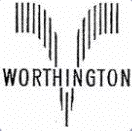About UsBackground: Worthington Biochemical Corp.After World War II Charles Worthington went to work at the Rockefeller Institute as a research assistant to Dr. Moses Kunitz. One of his primary tasks was preparing the crystalline enzymes being used for further research. He recognized the need for a commercial source of reliable, high-purity enzymes since researchers had to invest so much time purifying their own. In 1947 he founded the Worthington Biochemical Company in Freehold, New Jersey for the express purpose of preparing enzymes for the growing biochemical research community. The business was incorporated in 1951 to raise funds for expanding the staff. By 1959 the original facility had been out-grown so a new building was purchased in Freehold. Around this time a new field which relied heavily on enzymes had begun developing: clinical diagnostics. Worthington was still virtually alone as a manufacturer of high-purity enzymes and was able to quickly enter this new field. The demand for kits to do blood analysis work exploded. By the late 1960's Worthington had already outgrown the second plant, and a new facility was built in Freehold to replace it. New investors were also brought into the company to help finance the sudden growth. A public stock offering was made in 1972, and the plant was expanded further. By 1976 Worthington had sales of $18 million a year, employed around 300 people, and had sales offices in Europe, Canada, and California. The research staff in Freehold was already developing products for areas of biochemical research just beginning to evolve: immunology and molecular biology. (Molecular biology is that field of research involved with genetics and DNA studies.) Worthington had remained the primary source of high-purity enzymes in the world. Its products were consistently excellent, and the needs and concerns of the research community were the focal point of the company. Worthington pricing was based on cost rather than demand so competition remained minimal. Because of the complex nature of enzymes, no synthetic substances had replaced them as tools for biochemical and medical research, and the new areas of research with which Worthington was involved were equally promising for the same reason. By 1976 the venture capital investors were anxious to sell the company, and the company was sold to the Millipore Corporation of Bedford, Massachusetts. They concentrated on the lucrative clinical market and did not encourage further growth in projects related to either immunology or molecular biology. Worthington was now called the Worthington Clinical Division of Millipore. The Freehold facility had been further expanded for formulating and packaging large quantities of clinical diagnostic kits; however, no facilities improvement or upgrading occurred in the enzyme production areas. In 1982 Millipore sold its Worthington division to Flow Laboratories. Flow only owned Worthington for a year, then sold Worthington to a California company called Cooper Biomedical. Cooper owned the former Worthington facility for five years. By the end of 1986 Cooper was trying to sell a number of its companies. Von Worthington, son of Charles Worthington, decided to buy back the family company. Rather than purchase the company, he incorporated a new firm called Worthington Biochemical Corporation and then purchased the inventory and assets of the enzyme division of Cooper. He also hired twenty-four employees from Cooper. The purchase was finalized May 8, 1987. Sixteen of the current Worthington employees originally worked for Charles Worthington, and two current employees worked at the first Worthington laboratory in the 1950's. This continuity has made it possible to re-establish the quality of the product line to its original level, and by reintroducing its publication, the Worthington Enzyme Manual, the company has once again become a well-known name in the biochemical research community.
|
 Place Order
Place Order